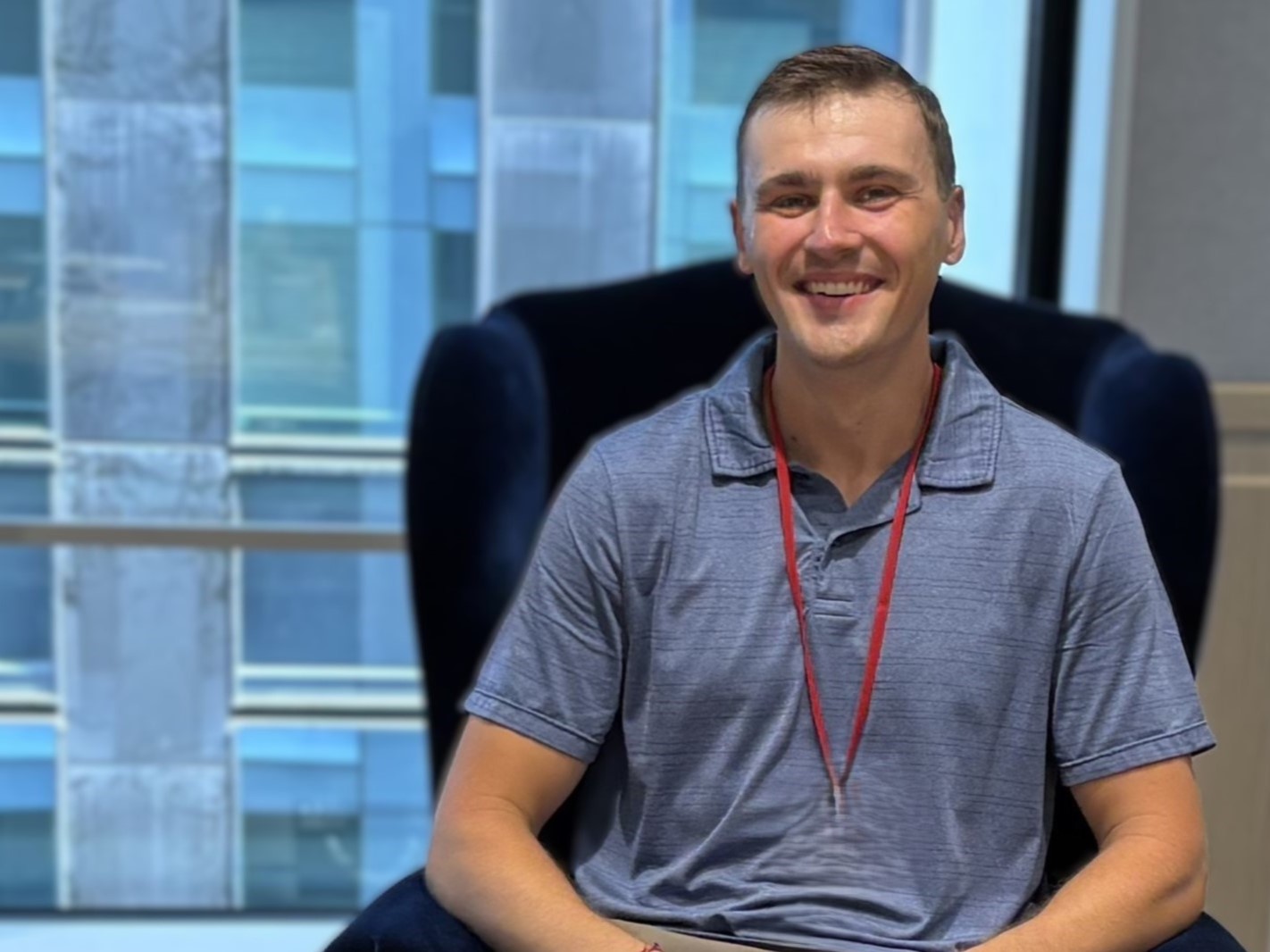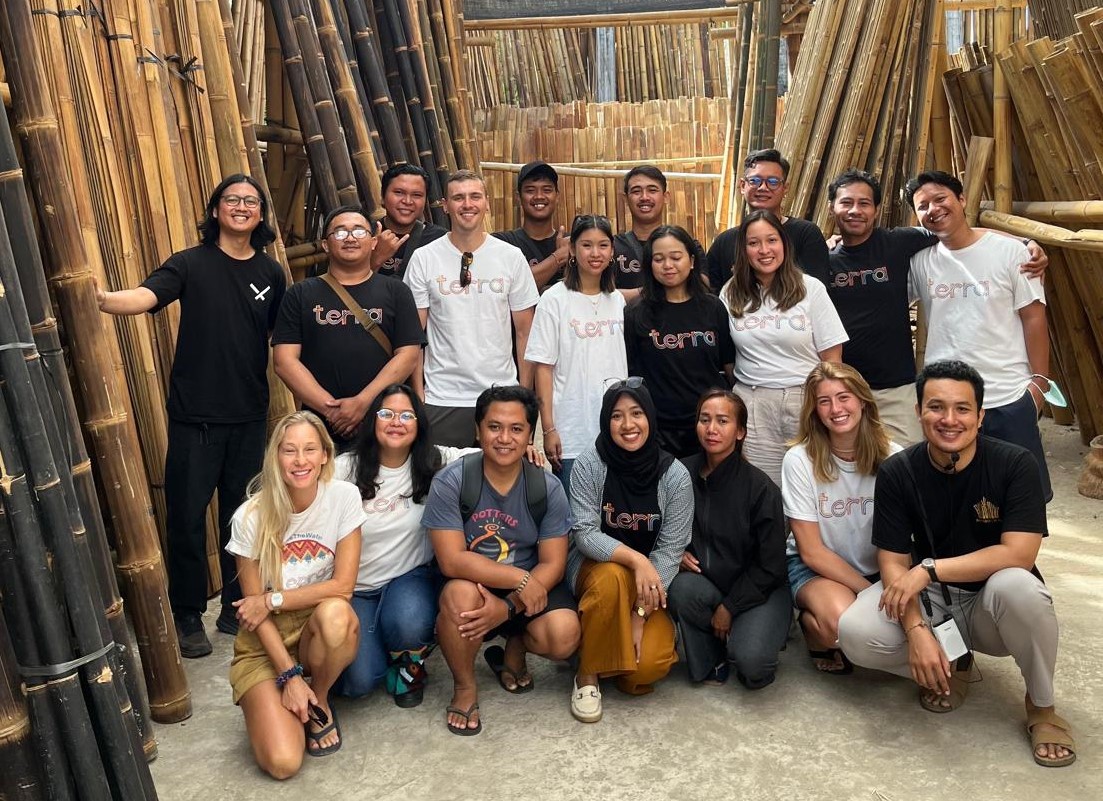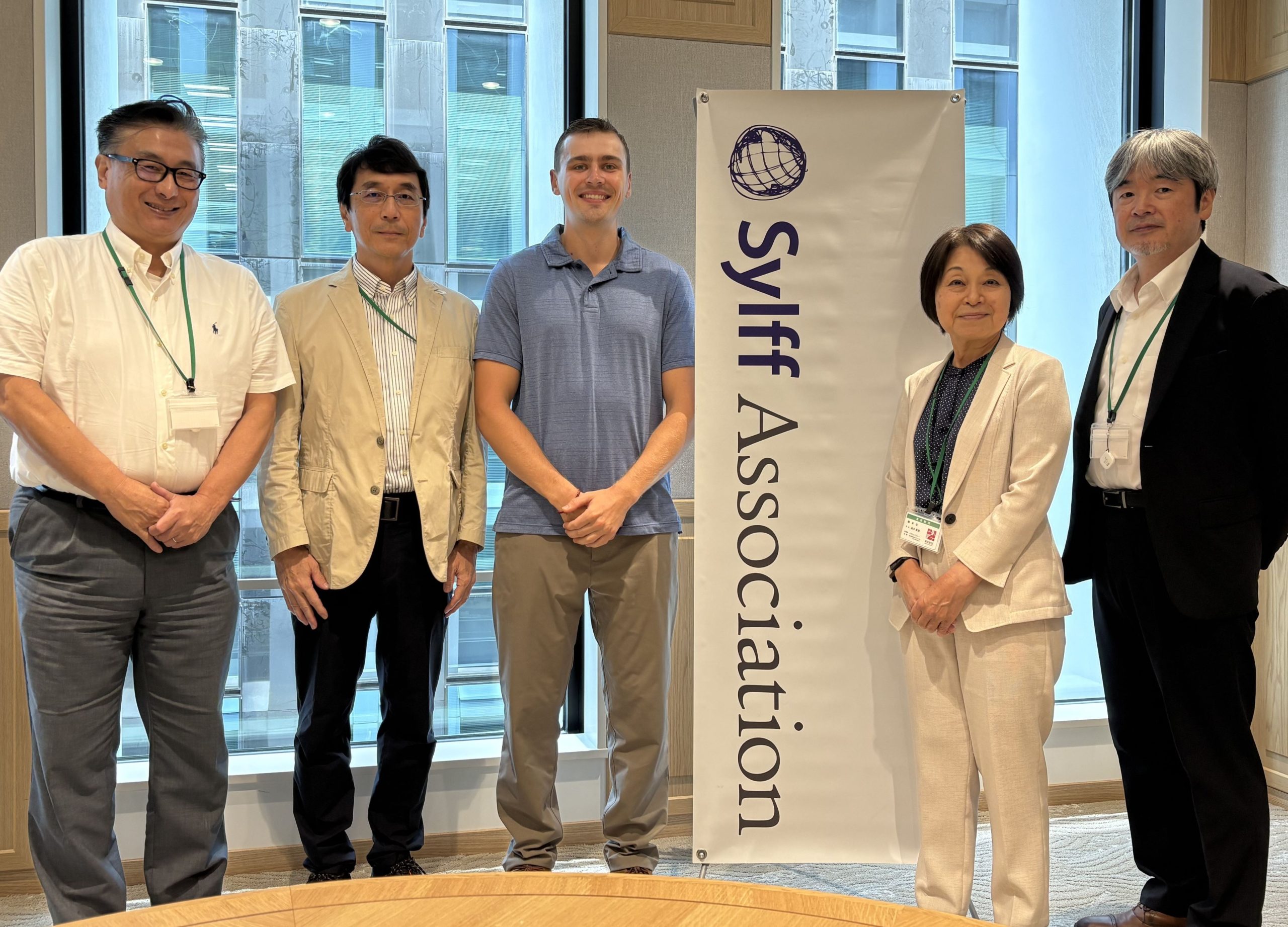Sylff News
Aug 20, 2025
U of Texas Fellow’s Summer of Sustainable Impact: Sylff@Tokyo
Indonesia faces serious water-related challenges, with contaminated drinking water contributing to the deaths of over 10% of children under five due to diarrheal diseases. The situation is especially dire in Bali, where untreated sewage, household and business waste, and massive amounts of plastic pollution severely degrade water quality in rivers and coastal waters.
A promising solution is emerging from Terra Water Indonesia, a mission-driven startup producing high-quality water filters made entirely from natural and locally sourced materials. These filters not only eliminate the need for plastic water bottles but also provide safe water to vulnerable households.

Bridging Innovation and Impact
Cody Steverson, a graduate research assistant at the University of Texas at Austin’s McCombs School of Business, spent two months interning at Terra with the help of a Sylff fellowship. On August 7, 2025, he visited the Sylff Association secretariat in Tokyo on his way back to campus for the fall semester.
“Many people think of Bali as a paradise, but it’s grappling with a massive water problem,” Steverson explains. “Most people rely on plastic bottles that have sitting in the heat all day or boil water before drinking, which wastes a lot of energy.”
Terra’s affordable and highly effective pot filters, made from clay, activated carbon, and colloidal silver allow users to purify water from almost any freshwater source—taps, wells, rivers, rainwater, or even rice paddies.
“For a typical Indonesian family that usually buys bottled water, the lower end models would pay for themselves in just two months,” Steverson notes.
Despite the product’s effectiveness, Terra faced a major hurdle: lack of awareness. “People didn’t know we existed. They’d never seen anything like our filters before.”

Building Credibility through Partnerships
Launched in 2020, the Bali-based startup operates with a hybrid business model blending nonprofit and for-profit strategies. It collaborates with a network of organizations to identify and deliver filters to families in need.
“Businesses partnering with us would purchase, say, twenty water filters, which we would then distribute to local villages,” Steverson explains. “We basically waited for sales to come to us.” The filters have been rigorously tested by multiple universities and the Indonesian Ministry of Health, proving to be highly effective in eliminating waterborne diseases. However, this success had not been clearly communicated to the public.
To address this, Steverson focused on building strategic partnerships with local entities that already had strong credibility. “I negotiated with a Michelin-star restaurant and got them to start using our filters. The chef is now a huge fan of Terra, and this should bring a lot of brand awareness and open a brand-new market.”
He also partnered with a hotel that now highlights the filters as part of its sustainability efforts, and he reached out to the Makadaya Foundation—a major Indonesian startup accelerator with whom Terra did not have a relationship—which agreed to purchase eight filters.
Creating Lasting Impact
At the end of his two-month internship, Steverson represented Terra at a TEDx event in Jakarta. “I was able to meet a lot of people there who were curious about the filters—and also about the only American in the room,” he recalls. “Everybody’s aware of the water problem, but no one had a viable solution. It was incredibly rewarding to know that I was able to make impact and help raise awareness.”
Beyond strengthening Terra’s ties with local businesses—many of which are foreign-owned—Steverson also laid the groundwork for future collaboration between sustainability-focused startups in Bali and internationally minded students at the University of Texas.

His experience as the sole non-Indonesian staff member at Terra Water Indonesia highlights his commitment to social impact through collaboration. The Sylff Association secretariat applauds his dedication to earth-friendly, human-centered solutions and wishes him continued success in his future endeavors. (Compiled by Nozomu Kawamoto)